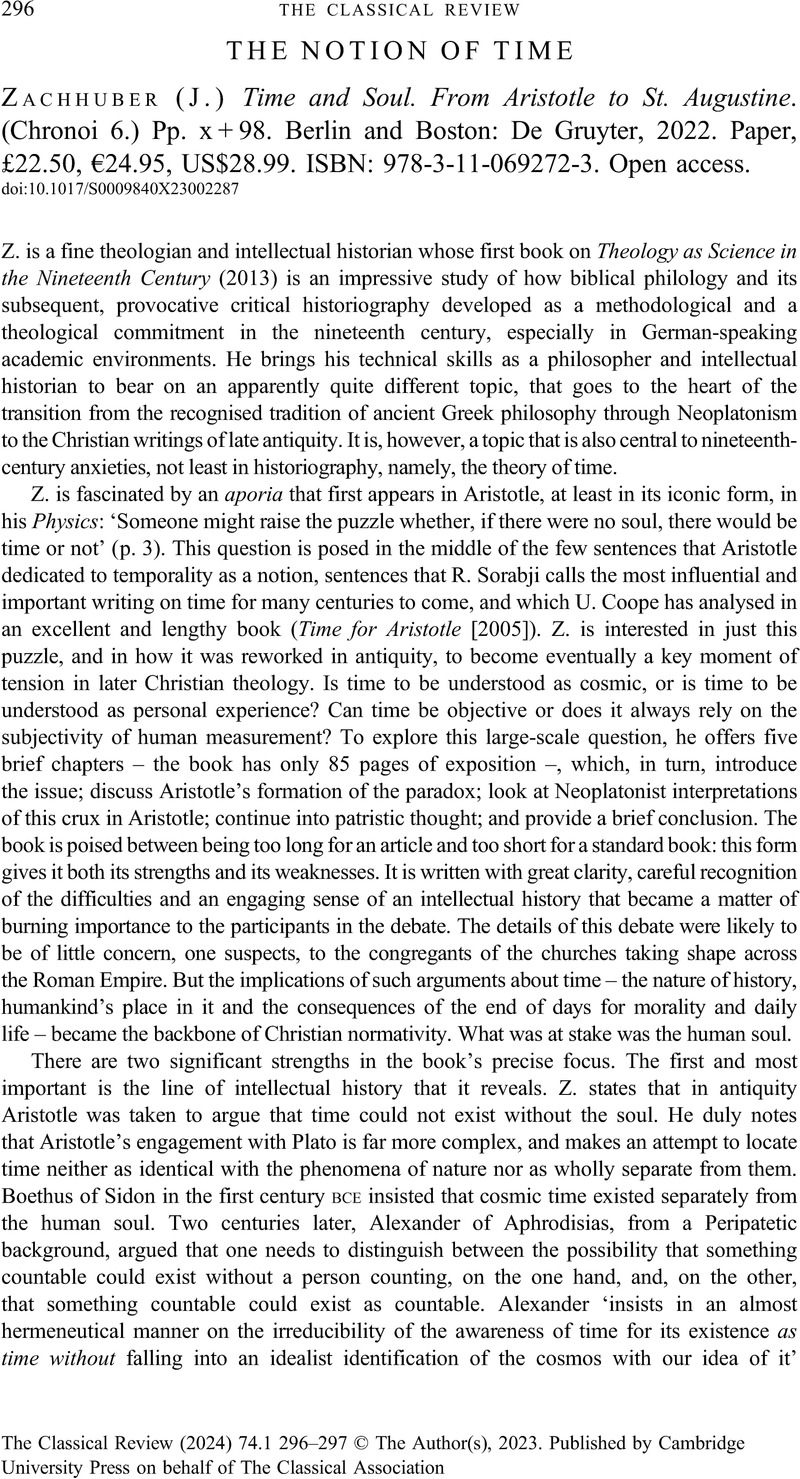No CrossRef data available.
Article contents
THE NOTION OF TIME - (J.) Zachhuber Time and Soul. From Aristotle to St. Augustine. (Chronoi 6.) Pp. x + 98. Berlin and Boston: De Gruyter, 2022. Paper, £22.50, €24.95, US$28.99. ISBN: 978-3-11-069272-3. Open access.
Review products
(J.) Zachhuber Time and Soul. From Aristotle to St. Augustine. (Chronoi 6.) Pp. x + 98. Berlin and Boston: De Gruyter, 2022. Paper, £22.50, €24.95, US$28.99. ISBN: 978-3-11-069272-3. Open access.
Published online by Cambridge University Press: 23 November 2023
Abstract
An abstract is not available for this content so a preview has been provided. Please use the Get access link above for information on how to access this content.

- Type
- Reviews
- Information
- Copyright
- Copyright © The Author(s), 2023. Published by Cambridge University Press on behalf of The Classical Association



